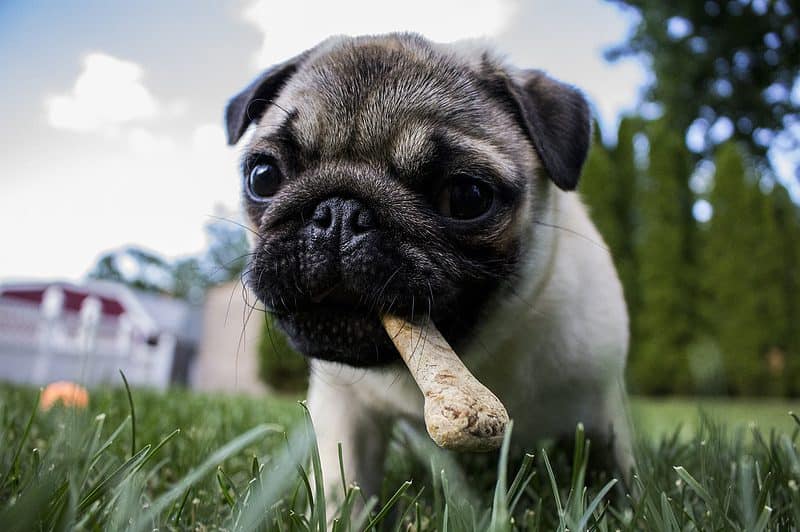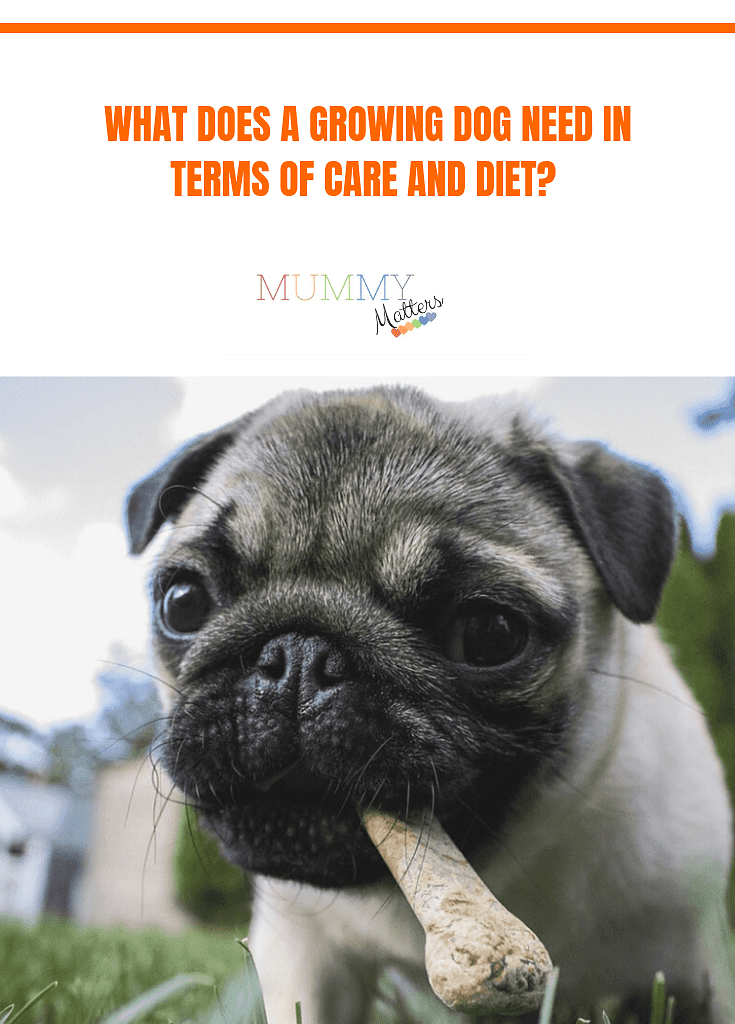All dog owners want their furry friends to be healthy and happy. This means providing the right food and care for them as they grow. Puppies need different nutrients than adult dogs, so it is essential to know what they need and how to provide it. This blog post discusses the nutritional needs of growing dogs and gives you tips on how to meet them.
Know the specific needs of your dog

No two pups are precisely alike, and each breed may have different nutritional needs. It’s essential to ask your vet what type of diet your dog should have so you can meet their specific needs. Puppies increase, so they need foods high in protein and fat to fuel their growth. They also need a balanced diet with vitamins and minerals for overall health. Even when giving treats, you must know that some breeds may be more sensitive to specific ingredients or foods. In this case, it is better to opt for natural dog treats without artificial colours, flavours, or preservatives. These treats can help meet your pup’s nutritional needs without the added sugar and calories. Often, these are made from fresh, whole-food ingredients designed to boost your dog’s health.
Provide a balanced diet
A puppy’s diet should consist of high-quality wet or dry food and fresh foods like fruits and vegetables. Ensure you provide a variety of foods to keep your pup interested in mealtime. A diet of 25-30% protein and 15-20% fat is recommended for puppies. It’s also essential to ensure that your pup has access to fresh, clean water. As puppies grow older, their food should change to meet their increased energy needs. Feeding your dog the same food all the time may become boring for them and can even lead to nutritional deficiencies. To ensure they get all the nutrients they need, switch up their diet with different wet dry and fresh foods, as well as delicious natural dog treats. Additionally, supplements can help ensure your pup gets all the necessary vitamins and minerals.
Feed several small meals
Puppies should be fed several times a day with smaller portions. This helps to split up their caloric intake and gives them the nutrients they need throughout the day. Most puppies will eat 3-4 small meals per day. As your pup grows, you can adjust the portions and number of meals as needed. Larger breeds should stick to the three meals a day, while smaller breeds may benefit from more frequent meals. However, to prevent overeating, monitoring your puppy’s food intake and adjusting accordingly is essential. This means only providing the food necessary for your pup’s size and activity level.
Keep in mind age requirements
When feeding your puppy, you should remember the age recommendations for a particular food. Some foods are made specifically for puppies and should not be given to adult dogs. For example, some puppy foods may contain sources of DHA that are needed during the early stages of development but could harm an adult dog’s health. Switching between different food types too quickly can upset your puppy’s stomach, so it’s critical to transition slowly. In this case, what you can do is gradually mix the new food into your pup’s existing diet over 7-10 days. From there, you can continue to feed your puppy the food that best meets its nutritional needs. For elderly dogs, it is important they take vitamins and supplements. Like how Mighty Munch hip and joint supplements for dogs aid the necessary nutrients that are needed for your dog.
Monitor weight gain

With puppies, it’s essential to keep track of their weight as they grow. It’s normal for puppies to gain weight rapidly in their first few months of life, but it’s essential to ensure they don’t get too heavy. If your pup is gaining weight too quickly, you should reduce the amount or switch to lower-calorie food. Additionally, if your puppy isn’t growing as expected or their energy levels seem low, it could be a sign that they’re not getting enough nutrition. In this case, you should consult a veterinarian to see if there is an underlying medical issue or nutritional deficiency.
Adhere to regular vet checkups
Finally, to ensure your puppy’s health and growth, it’s essential to take them in for regular checkups at the vet. This will allow you to discuss any concerns and ensure they get all the nutrition they need. Your vet may also be able to recommend specific diets or supplements that can meet your pup’s needs. For example, if your pup is an active breed, a higher-protein diet may benefit them. With the right combination of proper diet and regular vet checkups, you can ensure that your puppy grows up happy and healthy.
Creating a healthy nutritional plan for your pup is essential to their overall health and well-being. By understanding their specific needs, providing them with a balanced diet, and feeding several small meals throughout the day, you can help ensure that your pup gets the nutrition they need to grow up happy and healthy.

